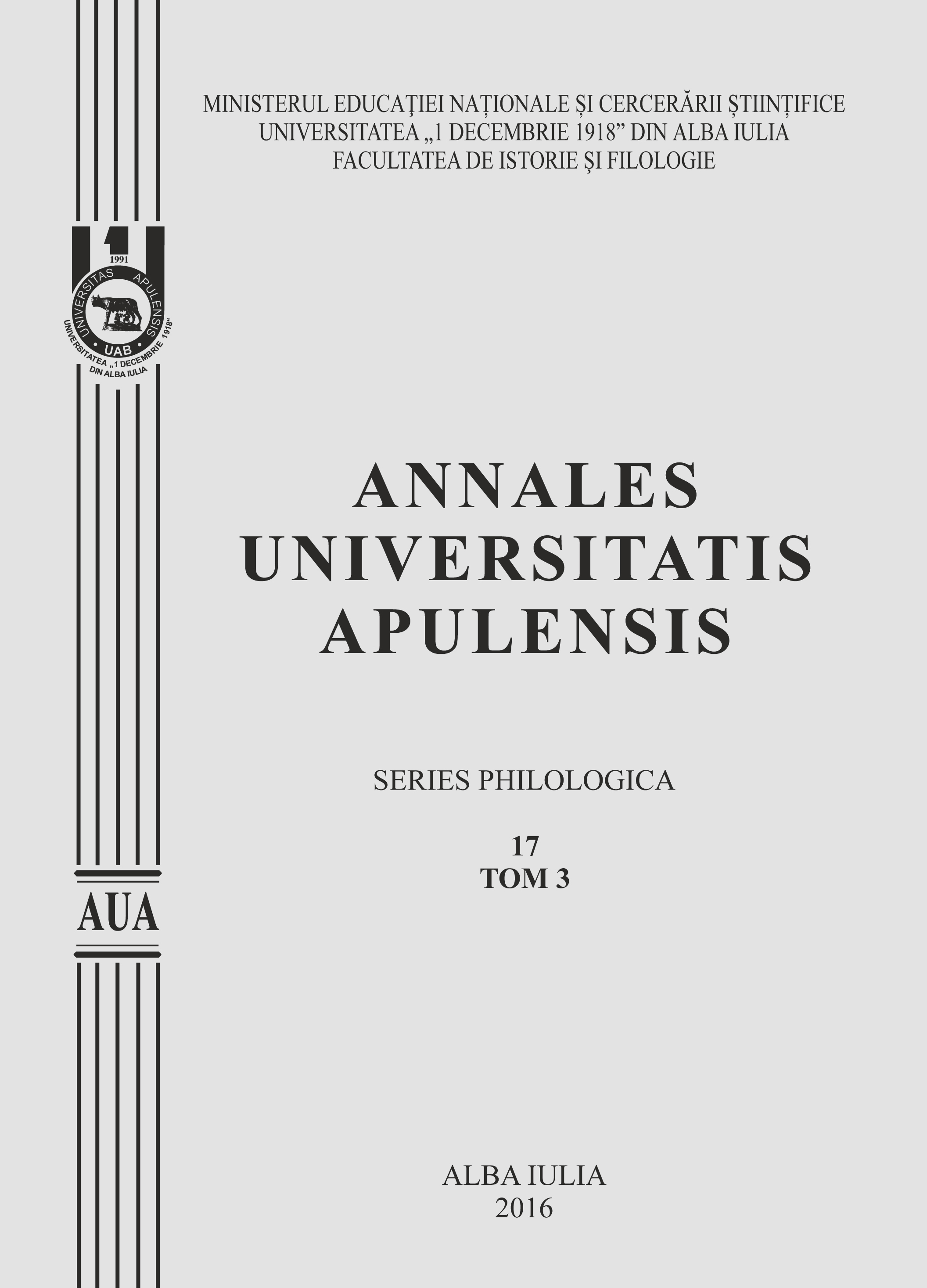Crearea limbii naţionale ȋn secolul al XIX-lea ȋn viziunea lui Mihai Eminescu
The creation of the national language in the 19th century in Mihai Eminescu's vision
Author(s): Petra Denisa TcacencoSubject(s): Language and Literature Studies
Published by: Universitatea »1 Decembrie 1918« Alba Iulia
Keywords: Romanian literary language; nineteenth century; Mihai Eminescu
Summary/Abstract: The purpose of this paper is to investigate the Romanian literary language creation in the nineteenth century theoretised by the national poet Mihai Eminescu. Precisely, we intended to focus on his ideas about the language formation and for this reason we studied the journalistic texts of the Academic edition in which he formulates opinions on this matter. Eminescu the journalist gives personal views on the elements that should be preserved in the Romanian idiom and, also, critics rough the contemporaries that have not managed yet to unify it. The language plays an important role in the process of Eminescu poems creation too. He demonstrates it throughout his poetry, from the beginnings of it, when he writes in the manner of his predecessors, but not copying them, instead, deconstructing the poetic material, discharging the words of their clichéd expression, revealing them new semnifications until his lasts poems where he forces the language to follow the strict rules of the antic meter. His theoretical ideas regarding the formation of literary language, important, though less known, contributed to the struggle of creating the national idiom in the epoch. Therefore, he believes that the evolution of language is essential for the growing of literature and that the writers have an essential function in the relation between the two of them. The reason is because language, being the autors instrument of writing, is improved in the artistic act. Also, the Romanian language is, in his opinion, a treasure left by our ancestors, the old men who, in their naivety, create an harmonious and beautiful idiom back in the seventeenth century. We can see, thus, how the poet sight turns mostly to the past, worshipping a language that existed in that time, heterogeneous as it was, while he negates the present, criticising the coevals of his epoch for ruining the old idiom. The main reason behind his attack is the appearance of the new language spoken by them, an idiom, as the poet affirms, denaturized by French elements, transformed into an artificial language, which does not reflect anymore the Romanian identity. The way Eminescu reacts to this situation and the remedies proposed are to be analyzed in this paper.
Journal: Annales Universitatis Apulensis. Series Philologica
- Issue Year: 17/2016
- Issue No: 3
- Page Range: 141-148
- Page Count: 8
- Language: Romanian

